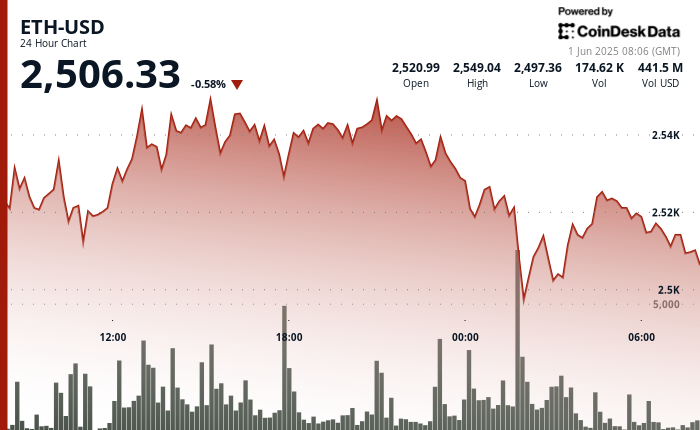SEC Reportedly Drops Enforcement Case Against Binance

The U.S. Securities and Exchange Commission (SEC) has formally dropped its lawsuit against Binance and its founder, Changpeng Zhao. In a joint filing on May 29th in the U.S. District Court for the District of Columbia, lawyers for both the SEC and Binance moved to dismiss the case, bringing an end to a significant crypto enforcement action first initiated in June 2023. This dismissal is seen as a symbolic conclusion to one of the most aggressive crypto crackdowns in U.S. history.
The original complaint lodged by the SEC in June 2023 accused Binance of multiple violations, including illegally serving U.S. users, artificially inflating trading volumes, and the improper commingling of customer funds. The agency also contended that Binance unlawfully enabled trading in crypto assets it viewed as unregistered securities, an argument previously used against other platforms like Coinbase and Kraken under prior SEC leadership. An amended complaint was filed on October 16, 2024.
The SEC's decision to dismiss the lawsuit comes after Binance reached a $4.3 billion settlement with the U.S. government in November 2023. That settlement saw Zhao plead guilty and step down as CEO of Binance, though he retained much of his wealth and avoided jail time. The current dismissal of the SEC's case was granted with prejudice, meaning the SEC cannot refile the same claims against Binance or Zhao in the future.
This development signals a notable shift in the SEC's regulatory approach towards the cryptocurrency industry, moving from strict enforcement towards engagement and regulatory revision. This change is occurring under new leadership influences, with Commissioner Hester Peirce and newly appointed Chair Paul Atkins leading roundtables, and an SEC Crypto Task Force, introduced by Acting Chairman Mark T. Uyeda on January 21, 2025, aimed at providing a regulatory framework and facilitating resolutions. Both parties in the Binance case noted this task force might impact and facilitate the litigation's resolution.
Reflecting this shift, the SEC has begun to dismantle key regulations. In January, it scrapped Staff Accounting Bulletin 121 (SAB 121), a controversial directive under former Chair Gary Gensler that required banks to count crypto holdings as liabilities. Commissioner Peirce publicly celebrated this reversal. Furthermore, in February, the agency issued new guidance indicating that it does not view most meme coins as securities under federal law, a move potentially benefiting entities like the Trump family, who are involved in such ventures.
Despite the regulatory challenges, Binance, the world's largest digital asset exchange by volume, continues its operations and expansion. The company is taking a $2 billion investment from the Emirati state fund MGX, entirely in USD1, a stablecoin newly launched by the World Liberty team. Binance has also forged ties with World Liberty Financial, a project aspiring to be a crypto bank, which funnels 75% of its profits to entities linked to the Trump family.
Binance and World Liberty are also deepening their footprint in Pakistan. WLF co-founder Zack Witkoff, son of U.S. Middle East envoy Steve Witkoff, recently struck a deal with the Pakistani government. Around the same time, Changpeng Zhao was appointed as an adviser to Pakistan's newly formed Crypto Council, a state-backed body tasked with shaping national digital asset policy.
The SEC's changing stance aligns with broader efforts by the Trump administration to foster a more crypto-friendly environment in the U.S. This includes the Justice Department reportedly shutting down its crypto enforcement team and the Commodity Futures Trading Commission (CFTC) being set to be led by a venture capitalist with close ties to crypto. President Trump and several family members are closely tied to crypto ventures, such as the $TRUMP token, which launched before his January inauguration and boasts a significant market cap, with a large portion reportedly held by the Trump Organization.
The SEC's willingness to dismiss the Binance lawsuit follows a trend of ending litigation against other crypto companies. Cases against Coinbase, Consensus, and Kraken were settled earlier this year, and investigations into Circle and Immutable have also ended. While sentiments are bullish, comparisons are drawn to the protracted settlement of the SEC’s case against Ripple Labs, which began in December 2020 and saw a final judgment on August 7, 2024, imposing a $125 million civil penalty on Ripple.
Overall, the dismissal of the SEC's lawsuit against Binance marks a pivotal moment, suggesting a potential move towards greater regulatory clarity and institutional adoption in the crypto space, as regulatory bodies appear to be shifting towards fostering innovation while maintaining oversight.









